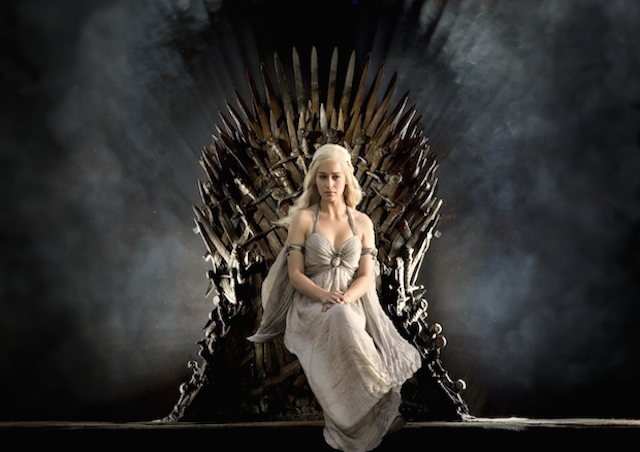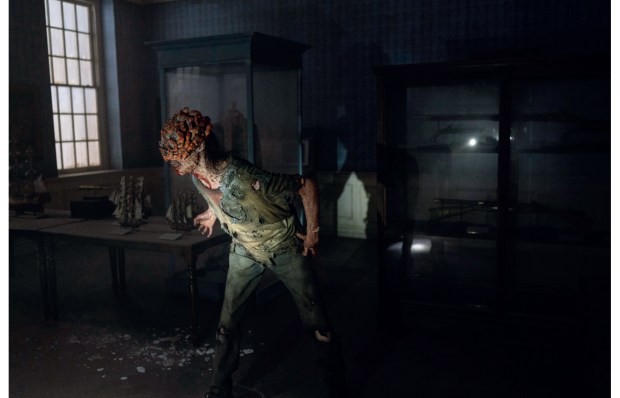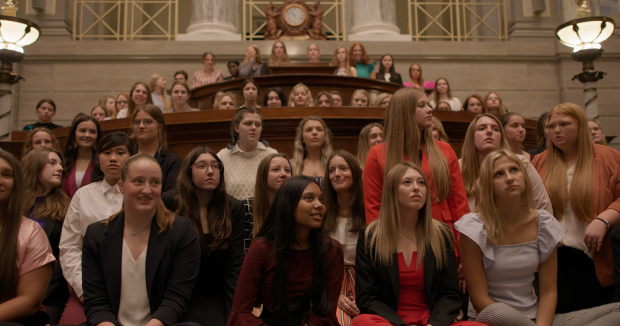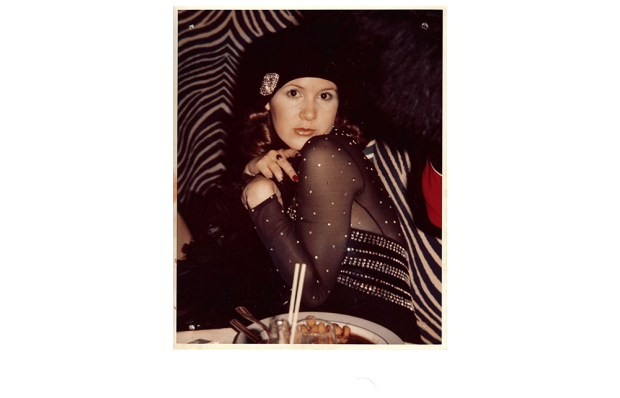A young pretender raises an army to take the throne. Having recently learnt of his father’s beheading, the adolescent — dashing and charismatic and descended from the old kings of the north — vows to avenge him. Despite his youth, he has already won in the field and commands the loyalty of many of the leading families of the realm; he is supported in this war by his mother, who has spirited away her two younger boys to safety. Pitted against them is the Queen, proud and strong-willed, and more of a man than anyone around her, battling for the inheritance of her sadistic young son.
This is the premise behind the HBO television show Game of Thrones, the fourth series of which begins on 7 April. Based on the George R.R. Martin heptalogy, A Song of Fire and Ice, and set on the island of Westeros, it has broken out of the fantasy genre to become one of the most popular shows of this, our golden age of television.
The great attraction — apart from the sex and violence, of course — is that GoT has a huge number of characters we actually care about, even though many are vile. It is a hard, horrible, medieval world, and the most sympathetic characters are so precisely because of misfortune; most of all the dwarf Tyrion Lannister, played by Peter Dinklage as a charming, sex-mad rogue with a melancholy air whose father never forgave him for causing his mother’s death in childbirth. There is also Jon Snow, Ned Stark’s bastard who has gone to fight for the Watch, a sort of Templars who protect ‘the Realm’ from the Wildings (who are basically Scots Highlanders).
Obviously, this being fantasy, the devotion of its fans reaches an almost alarming level; there are at least two extensive wiki sites on which the entire world Martin created is chronicled, with pages on obscure kings, gods, ancient battles, and, yes, you might well think that none of this actually happened. Then there is the fantasy art — go on to Google Images and have a look.
Not that I can talk, as I’ve just written an ebook on the real history that inspired the series. For much of the appeal is that a lot of this really did happen, and the history nerd in me hopes that the show will revive interest in the hugely violent and entertaining real-life game of thrones that took place from the conquest of the Angles to the Tudors. The young man in question was not Robb Stark, son of Ned, but Edward IV, whose father Richard, Duke of York, had been beheaded at Wakefield in December 1460; the Queen was not Cersei Lannister but Margaret of Anjou, the Lancastrian wife of the mad king Henry VI, whose insanity (as in Game of Thrones) is the starting point for the tale.
The bulk of the story comes from the 15th-century Cousins War, as it was then called, which inspired William Shakespeare and Walter Scott (who christened it the War of the Roses) and which has a special fascination still. But the series also borrows from the Spartans, Byzantines, the Renaissance and Crusades, with the army of slaves, the Unsullied, resembling the Islamic Mamluks. But mostly this saga tells the story of England and how it came to be.
The Wildings to the north are descendants of ‘first men’, who were conquered by the ‘Andals’, blond-haired invaders from across the narrow sea, and seven kingdoms eventually united into one realm. Martin is not a scholar in the J.R.R. Tolkien sense, but he knows a great deal about the ancient story of Britain and Ireland, the myths and migrations, and Thrones tells it better than most non-fiction.
For what matters less than the storylines lifted from history — like Robert Baratheon, Edward IV would gorge and drink himself to an early grave, leaving his sinister surviving brother to challenge his two young sons — is the paradoxical historical realism. Although they are from the fantasy genre, the books are better than most history in conjuring up a true impression of how people would have behaved and thought.
Much historical fiction features characters with essentially modern ideas and sensibilities, such as a belief in individual liberty, romantic idealism and a sense of the brotherhood of man, in a setting where such ideas would have been totally alien. No one before the 18th century would have thought like that and many people outside the West still don’t. Martin never makes that mistake.
And most of the time the characters are doing neither what is right or wrong but what is needed to further their clan; in the words of Tywin Lannister, a cold and ruthless aristocrat based on Edward I, he is a man who does what is necessary — and it’s often horrible.
That’s how our island story really was.
Got something to add? Join the discussion and comment below.
Get 10 issues for just $10
Subscribe to The Spectator Australia today for the next 10 magazine issues, plus full online access, for just $10.
Ed West’s The Realm: The True History behind Game of Thrones will be available as an Amazon Kindle Single on 3 April.
You might disagree with half of it, but you’ll enjoy reading all of it. Try your first month for free, then just $2 a week for the remainder of your first year.














Comments
Don't miss out
Join the conversation with other Spectator Australia readers. Subscribe to leave a comment.
SUBSCRIBEAlready a subscriber? Log in